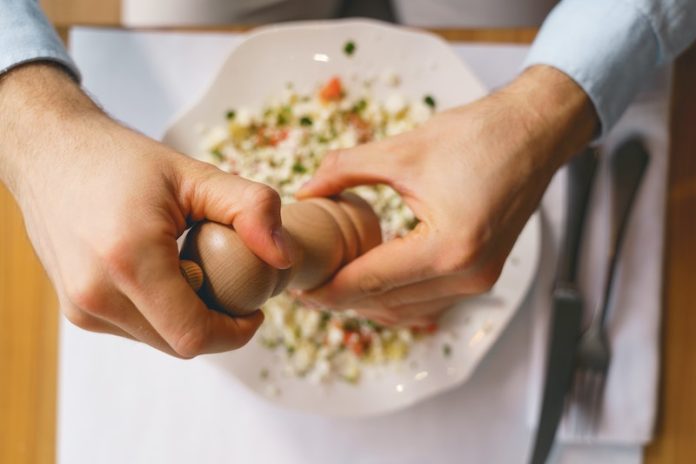
Let’s start simple: What is blood pressure, and why should you care?
Imagine your blood vessels as tiny highways for blood. Blood pressure is the force your blood makes as it moves along these highways.
Too much force—high blood pressure—can lead to problems like heart attacks, strokes, and kidney issues.
It’s a big deal, and a lot of things can affect it, including the food you eat. One of the biggest culprits is salt, also known as sodium. But why is that?
How Sodium Affects Blood Pressure
- Holding Water
Sodium makes your body hold onto water. Imagine putting a sponge in a pool; it soaks up a lot of water, right?
When you eat too much salt, your body becomes like that sponge, holding onto water. This extra water increases the ‘traffic’ in your blood vessels, pushing up your blood pressure.
- Strain on Arteries
With all this extra water in the system, your arteries feel the strain. Over time, this can make them less flexible and even cause them to get clogged. And guess what? That can raise your blood pressure even more.
- Where’s the Sodium?
Now, you might think, “I don’t use the salt shaker much, so I’m good, right?” Well, not necessarily. Most of the sodium we eat is already in the food we buy.
Fast food, canned foods, and even some ‘healthy’ snacks can have a lot of sodium. So, reading food labels can be a lifesaver—literally!
How to Cut Back on Sodium
- Fresh is Best
One of the best things you can do is eat more fresh food—fruits, vegetables, and lean meats. These usually have less sodium than processed foods.
- Spice it Up
Instead of salt, use spices like garlic, oregano, or chili to flavor your food. You won’t miss the salt, and your blood pressure will thank you.
- Be Label-Smart
When you shop, look for foods labeled ‘low sodium’ or ‘no salt added.’ And always check the nutrition facts on the package to see how much sodium is inside.
Before You Make Big Changes, Talk to Your Doc
If you’re thinking of cutting back on sodium big-time, it’s always a good idea to talk to your healthcare provider.
They can help you figure out how much sodium is okay for you and might even suggest other ways to manage your blood pressure.
Wrap-Up
So there you have it. Sodium plays a big role in high blood pressure, which is a risk factor for a bunch of other health issues. But the good news is, you can do something about it.
Start by knowing where sodium hides in your food, choose fresh foods when you can, and don’t be shy about using other spices. Your blood pressure—and your whole body—will be better off for it.
Follow us on Twitter for more articles about this topic.
Copyright © 2023 Scientific Diet. All rights reserved.








